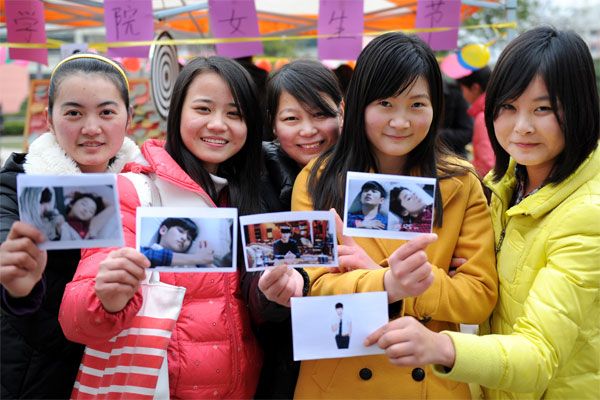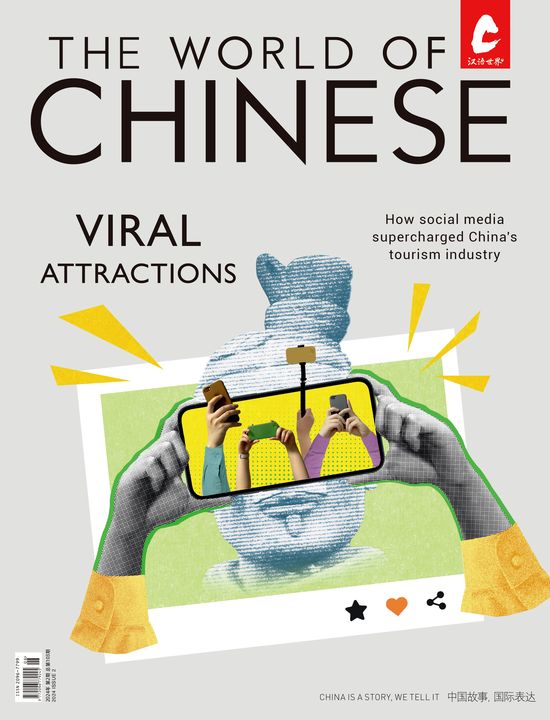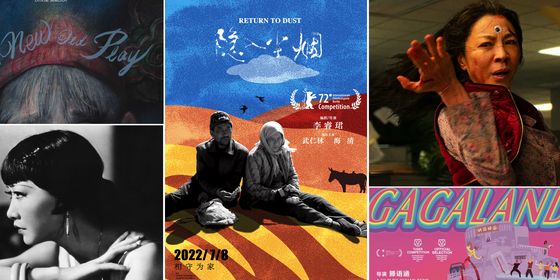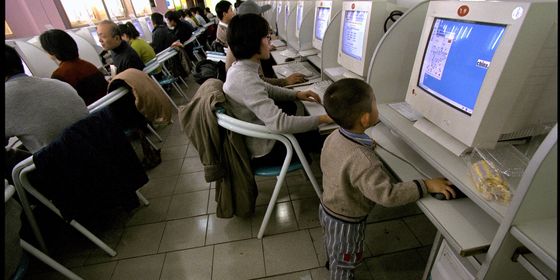From staid officials to hip teenagers, why do so many bemoan the quality of Chinese TV?
Early March saw China’s biggest political meeting of the year, the much-heralded two sessions, which would see the great and the good of Chinese politics come together and debate some of the trickiest issues facing modern China: rampant corruption that’s seeing single families steal sums of money greater than the GDP of entire nations, stifling pollution that’s sending large swathes of Chinese citizens to early graves, horrific terrorist attacks, and how to deal with what is thought could be a very sudden decline in the economic success of the nation. One other issue stood out too: why can’t China produce a TV show that is universally loved by the Chinese people? You know, like the Koreans do.
The morning debate was set off by the incredible success of Korean soap opera My Love from the Star (《来自星星的你》) on the Chinese mainland, which gained billions, yes billions, of views online. What’s worse, the show, critically at least, isn’t even very good. Large numbers of people have even denied watching it out of sheer embarrassment.
Unsurprisingly, some officials missed the point. Wang Qishan heads up the Central Commission for Discipline Inspection and is accordingly in charge of China’s largest anti-corruption campaign in its modern history. However, he managed to find time to wade into the debate, pointing out that although “Korean drama is ahead of us” it doesn’t necessarily matter, as Korean culture is already based on Chinese values anyway: “The core and soul of Korean opera is a distillation of traditional Chinese culture…It just propagates traditional Chinese culture in the form of a TV drama.” Considering the plot of My Love from the Star revolves around an alien who crash lands on earth in the early 17th century and hangs out for the next 400 years until he meets Korea’s most famous actress, überbitch Cheon Song-Yi, whom he ultimately falls in love with—well, Wang’s words felt a bit stretched. It’s easier to wonder if all the debate was necessary anyway, surely Chinese TV couldn’t be as bad as that?

Young Chinese women holding up photos of the actors and actresses from the hit Korean show, My Love from the Star
If Chinese TV is bad, then there are reasons for it. That is to say that, relatively speaking, TV in China is in its infancy, particularly for entertainment purposes. The first national broadcast wasn’t until May 1, 1958, and throughout the 60s, if people were to watch any television at all it was usually as large crowds in a public area, huddled around a single black and white TV set, often viewing public service information of a, shall we say, high ideological bent. Expansion was slow; by 1978 the nation still only had one television per 100 people, but things changed rapidly during the 1980s. Between 1982 and 1986, six American TV stations signed deals to provide US TV programs to China, and by 1985 over 80 percent of the population had access to television. Today, the sheer volume of TV made in China is remarkable, and it has been posited that for every hour of the day, two episodes of a TV show are filmed—some 17,000 episodes a year. America, which has a far more mature market, makes about 8,000 episodes a year.
The question as to why China has not produced more internationally popular shows is a divisive one, often touching on national pride and identity. May Liu has worked in the media most of her life, including a four year stint making documentaries at the BBC. Today she is back in China and runs her own TV production and events company; to her, differences in quality between Chinese and American TV can largely be put down to Chinese TV being so new on the entertainment front: “Look at how long the two countries have been developed. China is at just 20 years right, so it is not necessarily fair to compare…The television industry is just like a kid, it has to grow up. And in the process of things, they get mucky. And, getting mucky is important; it has to happen.”
On the surface, that’s a fair point. TV industries do not just magically appear fully formed, and in terms of development, China’s industry is probably where America’s was in the 1960s. And, certainly, while a lot of the younger Chinese generations, the so-called post 80s and post 90s generations, don’t have much positive to say about the state of Chinese television, the older generation are broadly content.
Liu certainly believes a lot of television is aimed at the older generation and in time it will improve: “There is a different focus for [older] generations. Like my mum, she likes to see things that happened in her lifetime. It doesn’t matter when it was made. It makes her think about the wonderful life they had…Look at China: it is a large population, you can’t have everybody at the same level as with Shanghai and Beijing.” Liu adds, “China will change a lot. For years the government hasn’t been confident. It’s not about politics; it’s about human beings…When you feel confident you can give people a bit more space. So, it is history. Think about how long they have had TV, for just 10 or 20 years. It is like starting from zero…But now that China is richer, they will need things that will make them happy.”
If you would like to read the rest of this article, please purchase the TV Issue in our online store today!













